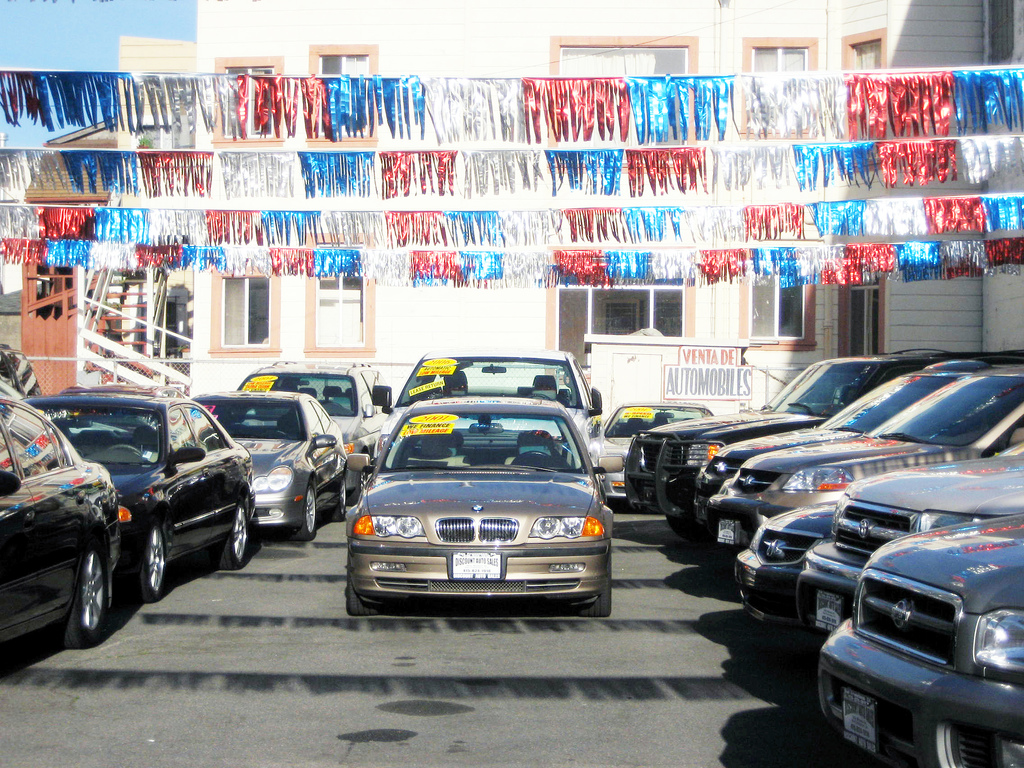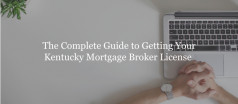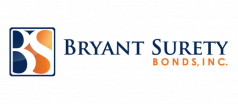How to Get Your California Auto Dealer License (5 Steps)

Becoming a licensed auto dealer in any state usually involves a lot of thorough preparation. Getting a California dealer license is no different. Depending on the type of license you want, you will need to complete a number of different requirements.
Step #1: Choose Your California Dealer License
Depending on the type of license you are applying for, there are certain differences in the application process. The California Department of Motor Vehicles (DMV) specifies 4 different types of licenses.
- New commercial auto dealer – allows you to sell new vehicles to the public (new dealers can also hold a new/used license)
- Used commercial auto dealer – allows you to sell used vehicles to the public and to other dealers
- Wholesale dealer – allows you to sell vehicles only to other dealers
- Auto broker – allows you to act as a broker in the sale and purchase of a vehicle that does not belong to you
Step #2: Apply for your California Dealer License
If you plan on selling only new cars, you will have to apply for a new dealer license. If, on the other hand, you plan on selling used cars, or you want to be a wholesale dealer or an auto broker, the licensing process and application are somewhat different.
New Dealer License Application Requirements
If you are applying for a new dealer license in California, you can begin by reviewing the New Dealer License Checklist provided by the DMV. The application process for a new dealer license involves completing and submitting a number of documents, such as:
- Application for original occupational license part C
- An original application for occupational license Part A
- California auto dealer bond in an amount of $50,000
- Authorization form to release financial information
- Property use and zoning verification form
- Personal history questionnaire
- Certificate of the proposed franchise
- Number of other documents
All of these documents can be found bundled together as the New Dealer Application Forms, but the DMV’s website also offers them as separate documents.
The DMV also provides a detailed guide about the information you need to provide to fill in your application. Such information will include photographs of the location of your dealership, all of which are described in a detailed manner in the above guide.
Once you take care of these, you will have to pay your application fee and a few other fees, and then you can submit your application.
Used, Wholesale, and Auto Broker Dealer License Application Requirements
When applying for a used dealer license or a wholesale dealer license, there’s a requirement to undergo a dealer education program and pass a test. This is the most significant difference between applying for these licenses and a new dealer license.
Applicants for these two licenses must go through an educational program at one of the DMV-approved education providers in California. They will also have to pass a written examination upon completing the program.
Finally, used and wholesale dealers are also obliged to attend continuing education programs every two years in order to keep their licenses
These, and all other requirements, are described in detail on the checklist for Used, Wholesale, and Auto Broker Dealer Licenses.
You can find all of the forms that you need to complete in the Used Dealer Dealer Wholesale Only and Auto Broker Application Forms Packet.
Step #3: Get your California Auto Dealer Bond
Part of the licensing requirements for auto dealers in the state is that they need to get a California auto dealer bond. This bond serves as a guarantee for dealers’ compliance with the provisions of the California Vehicle Code that apply to them.
- Applicants for a new and used dealer license must obtain a $50,000 bond
- Applicants for a wholesale dealer license must obtain a $10,000 bond
Dealer bonds offer financial protection and compensation to the public and the state if an auto dealer is found to be dishonest or has not complied with state regulations.
Want to get a free quote on your bond? Simply complete the bond form below!
-
1Get a FREE Bond QuoteInstant ballpark estimateStart Your Application
-
2Tell us about your businesspowered by

-
3Get your FREE quote today!
Step #4: Pay Your License Application Fees
When submitting your California auto dealer license application packet, you will also need to pay a number of licensing fees. These are as follows:
- $175 Non-refundable application fee plus $70 per branch location (if applicable)
- $300 New Motor Vehicle Board Fee, per location (does not apply to wholesale and auto brokers)
- $42 For each person submitting an ADM 1316 Fingerprint Card (only for out-of-state applicants)
- $1 Family Support Program fee
- $90 per dealer plate and/or $92 per motorcycle plate (dealer plates are not required; getting plates may also include various county fees)
- $100 Auto broker Endorsement fee (if applicable)
Step #5: Submit Your Application and Pass a Dealership Inspection
When you’ve completed all of the forms for your California dealer license application, you can proceed with submitting them, along with supporting paperwork, to a local DMV Inspector Office.
It may take up to 120 days for the DMV to review your application and contact you about the result. During this time, the department will most likely perform site inspections to check whether you comply with all licensing requirements.
Learn how to start your own car dealership and even more details about the licensing process by downloading our FREE ebook guide!
Renewing Your California Dealer License and Bond
Auto dealer licenses in California must be renewed annually. The DMV will notify you no later than 90 days before the expiration of your license. You will then need to renew the Renewal Application Form OL 45 and submit various supporting documents.
When renewing your license, you will also need to renew your auto dealer bond.
Do you have any questions about getting your California auto dealer bond? Call us at call at (866) 450-3412 anytime!




